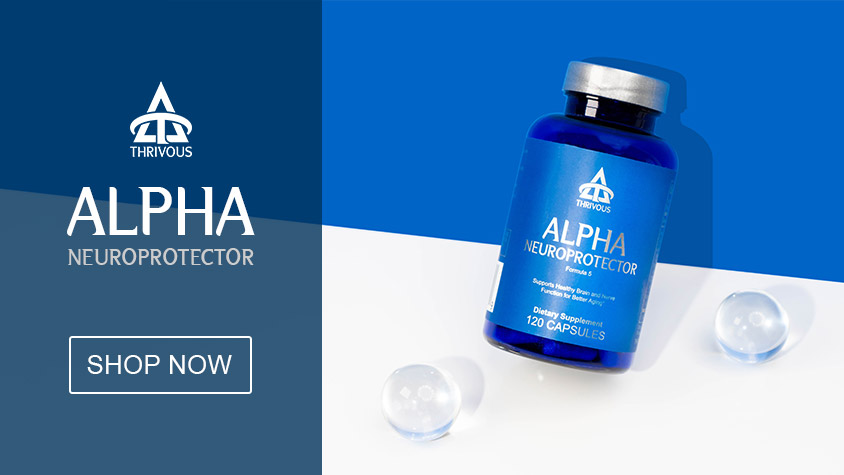Support Healthy Brain Aging with Ginkgo Biloba

Ginkgo Biloba, a tree native to China, is among the most-studied natural nootropics. Some tout its efficacy to improve memory, cognition, sleep quality, subjective well-being, calmness, cerebral blood flow, processing accuracy, processing speed, and reaction time. Studies, on the whole, seem to indicate that these effects are either subtle or unreliable. However, there's one nootropic effect that appears to be particularly notable: Ginkgo may support healthy brain aging.
Multiple peer-reviewed, double-blind, placebo-controlled studies in humans have explored the effects of Ginkgo in relation to healthy brain aging:
- Effects of Ginkgo biloba extract EGb 761® on cognitive control functions, mental activity of the prefrontal cortex and stress reactivity in elderly adults with subjective memory impairment - a randomized double-blind placebo-controlled trial. In 2016, this study found “indications for improved cognitive flexibility without changes in brain activation, suggesting increased processing efficiency with [Ginkgo]”.
- Efficacy and safety of Ginkgo biloba extract EGb 761 in mild cognitive impairment with neuropsychiatric symptoms: a randomized, placebo-controlled, double-blind, multi-center trial. In 2014, this study found that Ginkgo "improved [neuropsychiatric symptoms] and cognitive performance in patients with [mild cognitive impairment]. The drug was safe and well tolerated".
- Long-term use of standardised Ginkgo biloba extract for the prevention of Alzheimer's disease (GuidAge): a randomised placebo-controlled trial. In 2012, this study found that Ginkgo "did not reduce the risk of progression to Alzheimer's disease compared with placebo".
- Effect of Western medicine therapy assisted by Ginkgo biloba tablet on vascular cognitive impairment of none dementia. In 2012, this study found that Ginkgo "can improve the therapeutic efficacy as well improve cognitive ability and cerebral blood flow supply of patients with vascular cognitive impairment of none dementia (VCIND)".
- Ginkgo biloba extract EGb 761® in dementia with neuropsychiatric features: a randomised, placebo-controlled trial to confirm the efficacy and safety of a daily dose of 240 mg. In 2012, this study found that "treatment with [Ginkgo] was safe and resulted in a significant and clinically relevant improvement in cognition, psychopathology, functional measures and quality of life of patients and caregivers".
- Efficacy and tolerability of a once daily formulation of Ginkgo biloba extract EGb 761® in Alzheimer's disease and vascular dementia: results from a randomised controlled trial. In 2012, this study found that Ginkgo "improved cognitive functioning, neuropsychiatric symptoms and functional abilities in both types of dementia".
- Ginkgo biloba for preventing cognitive decline in older adults: a randomized trial. In 2009, this study found that "compared with placebo, the use of [Ginkgo] did not result in less cognitive decline in older adults with normal cognition or with mild cognitive impairment".
- Ginkgo biloba special extract in dementia with neuropsychiatric features. A randomised, placebo-controlled, double-blind clinical trial. In 2007, this study found that "the data add further evidence on the safety and efficacy of [Ginkgo] in the treatment of cognitive and non-cognitive symptoms of dementia".
- A double-blind placebo-controlled trial of tanakan in the treatment of idiopathic cognitive impairment in the elderly. In 2004, this study found that Ginkgo "might be helpful in treating the early stages of primary degenerative dementia".
- Treatment of age-related memory complaints with Ginkgo biloba extract: a randomized double blind placebo-controlled study. In 1998, this study found that "use of Ginkgo extracts in elderly individuals with cognitive impairment might be promising".
As you can see from the findings of these studies, interpretations of their results are not all consistent with the conclusion that Ginkgo may support healthy brain aging. Seven of the studies found support, while two of the studies did not. I'll refer to these latter two studies as the "Lancet and JAMA studies".
For these and related studies, there are multiple recent meta-analyses, which may provide broader insight into expert interpretations of their results:
- Effects of Ginkgo biloba on dementia: An overview of systematic reviews. In 2017, this overview of systematic reviews observed that Ginkgo “has potentially beneficial effects for people with dementia”.
- Efficacy of Ginkgo biloba extract EGb 761(®) in dementia with behavioural and psychological symptoms: A systematic review. In 2016, this systemic review observed “evidence of efficacy of [Ginkgo] in the treatment of out-patients suffering from Alzheimer's, vascular or mixed dementia with BPSD”.
- Ginkgo Biloba for Mild Cognitive Impairment and Alzheimer's Disease: A Systematic Review and Meta-Analysis of Randomized Controlled Trials. In 2016, this meta-analysis found that Ginkgo "is potentially beneficial for the improvement of cognitive function, activities of daily living, and global clinical assessment in patients with mild cognitive impairment or Alzheimer's disease".
- Ginkgo biloba for prevention of dementia: a systematic review and meta-analysis. In 2015, this meta-analysis found that "there is no convincing evidence from this review that demonstrated Ginkgo biloba in late-life can prevent the development of dementia".
- Meta-analysis of the efficacy and safety of Ginkgo biloba extract for the treatment of dementia. In 2015, this meta-analysis found that "taking [Ginkgo] is effective and safe in the treatment of dementia".
- Efficacy and adverse effects of ginkgo biloba for cognitive impairment and dementia: a systematic review and meta-analysis. In 2015, this meta-analysis found that Ginkgo "is able to stabilize or slow decline in cognition, function, behavior, and global change at 22-26 weeks in cognitive impairment and dementia, especially for patients with neuropsychiatric symptoms".
As among the studies themselves, the meta-analyses are not all consistent with the conclusion that Ginkgo may support healthy brain aging. Five of the meta-analyses found support, but one did not. The meta-analyses that found support each included four or more (and as many as 21) studies across thousands of subjects. The one meta-analysis that did not find support included only two large studies, also across thousands of subjects. Those two studies were the Lancet and JAMA studies listed above.
Three studies challenge interpretations of results from the Lancet and JAMA studies:
- Analysing time to event data in dementia prevention trials: The example of the guidage study of EGB761®. This 2016 analysis of the Lancet study advised "performing another randomised clinical trial of [Ginkgo] explicitly testing the hypothesis of a late treatment effect" because "a significant treatment-by-time interaction for the incidence of [Alzheimer's] was observed in a protocol-specified subgroup analysis, suggesting that the hazard ratio is not constant over time."
- Efficacy and adverse effects of ginkgo biloba for cognitive impairment and dementia: a systematic review and meta-analysis. Regarding the Lancet and JAMA studies, respectively five and six years in length, this 2015 meta-analysis (summarized above) observed that "due to the particularly long pre-dementia phase, expecting a preventive effect of Ginkgo biloba on the incidence of dementia over a period of 3–6 years may be overoptimistic".
- Ginkgo Biloba Extract and Long-Term Cognitive Decline: A 20-Year Follow-Up Population-Based Study. Regarding the Lancet study, this 2013 study observed that "another alternative interpretation of [its] negative results might be that [Ginkgo] is no longer effective once the neurodegenerative process of dementia is too advanced. In this case, dementia outcome over a relatively short follow-up would not be the most relevant outcome to assess the efficacy of [Ginkgo] on cognitive aging."
In summary, these three studies suggest that the Lancet and JAMA studies may not provide reliable guidance on the efficacy of Ginkgo to support healthy brain aging. All of the studies suggest that the Lancet and JAMA studies may have been too short. And one of the studies suggests that a methodological change to the Lancet study may have resulted in the opposite interpretation of its data.
In addition to challenging the Lancet and JAMA studies, the 2013 cohort study may support the long-term efficacy of Ginkgo in two ways. First, it was a 20-year study, which makes it by far the longest study of Ginkgo that I know of. And it found that "cognitive decline in a non-demented elderly population was lower in subjects who reported using Ginkgo than in those who did not". Second, it compared Ginkgo to a drug that is also among the most-studied nootropics for supporting healthy brain aging. And the study found that the drug "was associated with more rapid decline in cognitive function" than Ginkgo.
Judging from these studies, overall, I'm led to a couple provisional conclusions. First, because current studies have prompted interpretive disagreements, Ginkgo warrants yet more studies. Second, because Ginkgo supplementation is generally safe and inexpensive, and because the results of current studies are consistent with the possibility that it may be more effective than alternatives in support of healthy brain aging, Ginkgo is probably worth including in your nootropic stack.
To improve the nootropic effect of Ginkgo, consider combining it with Phosphatidylserine. Ginkgo and Phosphatidylserine supplementation in combination may be more effective than either alone, according to this study:
- Acute cognitive effects of standardised Ginkgo biloba extract complexed with phosphatidylserine. In 2007, this study found that combined Phosphatidylserine and Ginkgo Biloba supplementation “resulted both in improved secondary memory performance and significantly increased speed of memory task performance”.
Thrivous Alpha
Based in part on the studies cited above, Thrivous developed Alpha Neuroprotector. Each serving provides a clinical dose of Ginkgo Biloba, as well as a clinical dose of Phosphatidylserine. Alpha is available to purchase online in the Thrivous store.
More Articles
Read more articles at Thrivous, the human enhancement company. You can browse recent articles in Thrivous Views. See other Geroprotectors, Nootropics or Product Ingredient articles. Or check out an article below.
-
Gold Nanoparticles with Anti-Viral Action
Among the many biotechnology and life science advances reported in last week’s news, the development of nanoparticles with broad spectrum ...
-
Never Forget Phosphatidylserine to Enhance Memory
An elephant never forgets. At least that's how the old saying goes. I don't want to be an elephant, but ...



